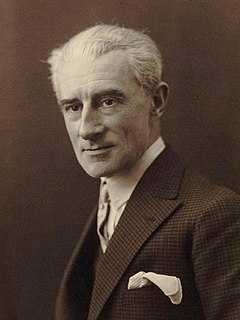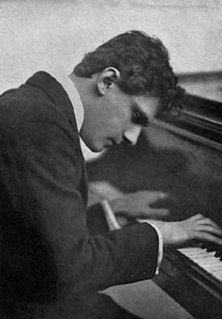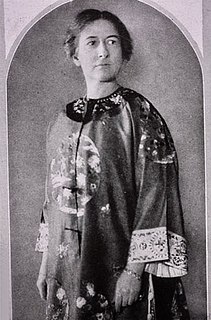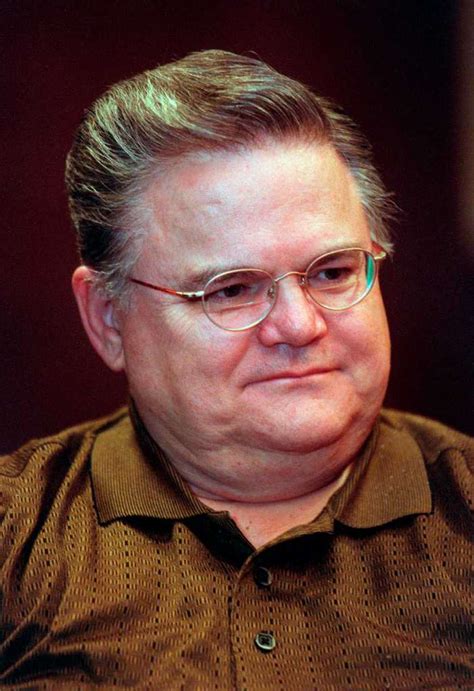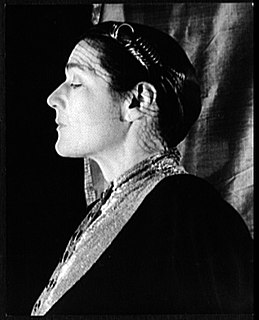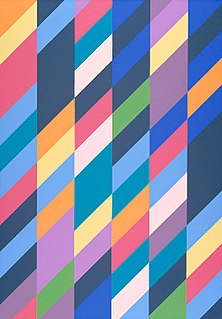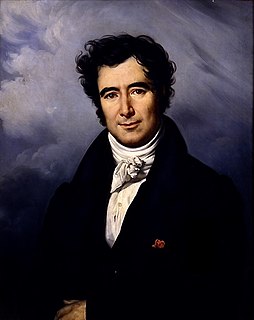A Quote by Maurice Ravel
In fact, the influence of Schoenberg may be overwhelming on his followers, but the significance of his art is to be identified with influences of a more subtle kind - not the system, but the aesthetic, of his art. I am quite conscious of the fact that my Chansons madécasses are in no way Schoenbergian, but I do not know whether I ever should have been able to write them had Schoenberg never written.
Related Quotes
There are various art forms we may or may not have talent for, may or may not have time for, and we may or may not be able to express ourselves in, but we ought to consider this fact-that whether we choose to be an environment or not, we are. We produce an environment other people have to live in. We should be conscious of the fact that this environment which we produce by our very 'being' can affect the people who live with us or work with us.
I think you too recognize the important relationship between philosophy and art, and it is just this relationship that most painters deny. The great masters do grasp it, unconsciously; but I believe that a painter's conscious spiritual knowledge will have a much greater influence upon his art, and that it would be due only to a weakness in him, or lack of genius, should this spiritual knowledge be harmful to his art.
He is not famous. It may be that he never will be. It may be that when his life at last comes to an end he will leave no more trace of his sojourn on earth than a stone thrown into a river leaves on the surface of the water. But it may be that the way of life that he has chosen for himself and the peculiar strength and sweetness of his character may have an ever-growing influence over his fellow men so that, long after his death perhaps, it may be realized that there lived in this age a very remarkable creature.
There should be a law that no ordinary newspaper should be allowed to write about art. The harm they do by their foolish and random writing it would be impossible to overestimate--not to the artist but to the public.... Without them we would judge a man simply by his work; but at present the newspapers are trying hard to induce the public to judge a sculptor, for instance, never by his statues but by the way he treats his wife; a painter by the amount of his income and a poet by the colour of his necktie.
I've never had a problem with Jesus. In fact, I'm pretty sure he's just the kind of guy you'd always want to have around. But I have had a big problem with his agents, publicists, and managers. They've abused his message for power and converted moldable, excited people into bullied believers and followers.
Crushed to earth and rising again is an author's gymnastic. Once he fails to struggle to his feet and grab his pen, he will contemplate a fact he should never permit himself to face: that in all probability books have been written, are being written, will be written, better than anything he has done, is doing, or will do.
Walden - all his books, indeed - are packed with subtle, conflicting, and very fruitful discoveries. They are not written to prove something in the end. They are written as the Indians turn down twigs to mark their path through the forest. He cuts his way through life as if no one had ever taken that road before, leaving these signs for those who come after, should they care to see which way he went.
It was only after I had been out of the art school that I actually copied a small Seurat, and I copied it in order to follow his thought, because if you do copy an artist, and you have a close feeling for him, in fact that you need to know more about his work, there is no better way than actually to copy, because you get very close indeed to how somebody thinks.
The individual man, in introspecting the fact of his own consciousness, also discovers the primordial natural fact of his freedom: his freedom to choose, his freedom to use or not use his reason about any given subject. In short, the natural fact of his "free will." He also discovers the natural fact of his mind's command over his body and its actions: that is, of his natural ownership over his self.
I was often humiliated to see men disputing for a piece of bread, just as animals might have done. My feelings on this subject have very much altered since I have been personally exposed to the tortures of hunger. I have discovered, in fact, that a man, whatever may have been his origin, his education, and his habits, is governed, under certain circumstances, much more by his stomach than by his intelligence and his heart.
